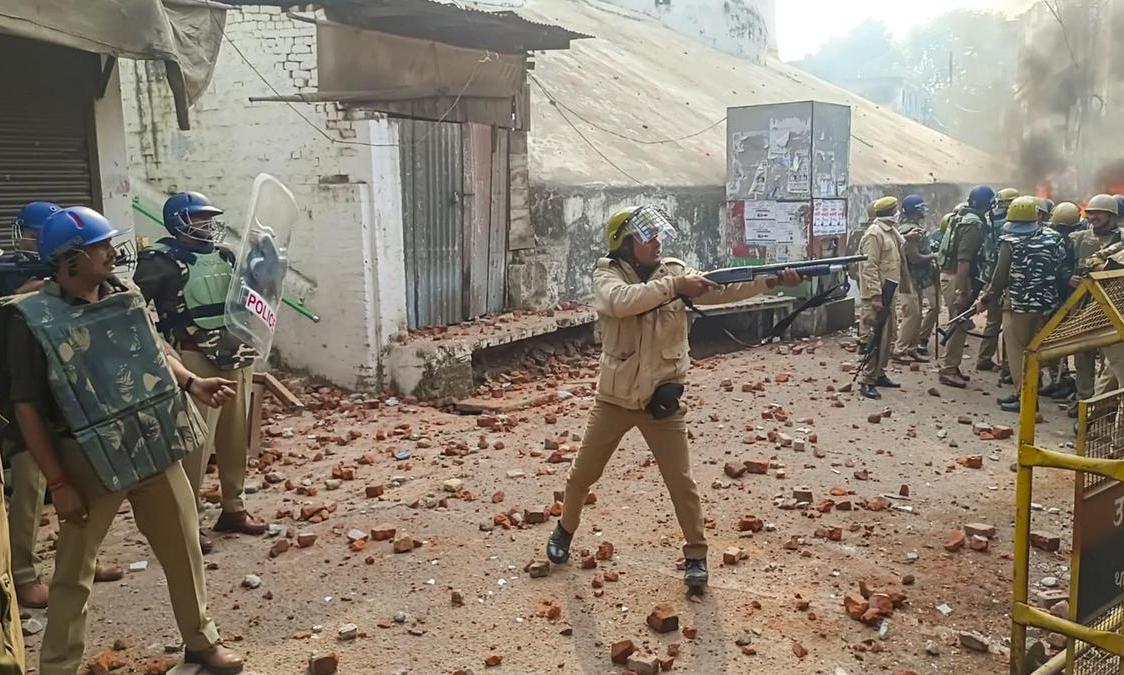
Survey of Sambhal mosque, protected by law, results in four deaths
text_fieldsThe number of deaths of Muslim men who were shot by the police during the commotion followed by a team of officials who came to conduct a court-ordered survey of the Shahi Jama Masjid in Uttar Pradesh’s Sambhal has risen to four.
The court order for the survey came amid a standing order from the Supreme Court in the Babri Masjid ruling, stating that the ruling shall not set a precedent for claiming other mosques in the country, citing The Places of Worship (Special Provisions) Act of 1991.
The incident occurred on November 24 when a survey team, accompanied by local administration and police, was conducting photography and videography of the Mughal-era mosque. The deaths have become a contentious issue, with locals alleging police firing and the administration attributing the deaths to crossfire involving the mob.
The violence erupted as the survey, initiated by an advocate commissioner on the directions of a local court, was nearing completion. The court had ordered the survey following claims by Hindu activists that the mosque, built during Emperor Babur's reign, was originally a Hindu temple dedicated to the prophesied avatar of Vishnu, Kalki.
After an initial survey earlier in the month, the team returned to the site for a more detailed inspection. The survey began peacefully in the morning but descended into chaos as a crowd gathered.
The situation escalated when the survey team attempted to leave, prompting police to use measures such as teargas and plastic bullets. According to officials, the mob attacked police personnel from three sides, pelting stones and firing bullets.
The police reported injuries to several officers, including a district police chief's public relations officer who was shot in the leg and a deputy collector who sustained a fractured foot. A police circle officer was also injured by shrapnel. Additionally, the mob set fire to multiple vehicles in the vicinity.
The administration maintained that the deaths resulted from crossfire initiated by the mob, which allegedly fired at both the police and among themselves. The deceased were identified as Naeem, Noman, and Bilal. Naeem’s family, however, accused the police of targeting him, claiming he was shot in the abdomen while purchasing groceries.
Authorities have detained 15 individuals, including two women, accused of participating in the protest. They are now scrutinising CCTV and drone footage to identify more participants, with plans to invoke the stringent National Security Act against those involved. Police have described the mob's actions as premeditated and aimed at disrupting the survey work.
The local court had ordered the survey in response to a civil suit filed by eight Hindu plaintiffs, who claimed the mosque was built on the ruins of a Hindu temple partially demolished in 1529.
The plaintiffs argued that the site, protected under the Ancient Monuments Preservation Act, 1904, was unlawfully controlled by the mosque's caretaking committee. They sought access to the mosque, asserting it was an ancient temple dedicated to Kalki, and alleged that the Archaeological Survey of India (ASI) had failed to facilitate public entry as required under relevant laws.
The Shahi Jama Masjid acknowledged as a historic monument by the district's official website, has become a focal point of communal tensions. The court permitted the survey to assist in adjudicating the matter and ensure the submission of a detailed site report. The survey work on November 24 marked the final phase of this process.
The families of the deceased have disputed the official narrative, accusing the police of excessive force and questioning the necessity of their presence at the mosque. Videos circulated on social media appeared to show police firing at the mob, but the type of ammunition used could not be confirmed. While the divisional commissioner asserted that the police only used non-lethal methods, critics highlighted inconsistencies in the administration's statements.
The violence has drawn political attention, with local Member of Parliament Zia-ur-Rehman Barq opposing the survey on the grounds that the mosque is protected under The Places of Worship Act, 1991. The Act prohibits the conversion of religious structures to their pre-1947 status. Barq appealed for peace and pledged to raise concerns over alleged police brutality in the upcoming winter session of parliament.
Meanwhile, representatives of the Hindu plaintiffs expressed satisfaction with the survey's completion and anticipated the submission of the advocate commissioner’s report to the court. They reiterated their claims that the mosque was constructed by altering a Hindu temple and called for its restoration as a place of Hindu worship.






















